For this installment of Fiction Favorites & Awesome Authors, I welcome William Burton McCormick to VBlog. McCormick writes suspenseful historical fiction of considerable depth and intelligence in beautiful prose. His works should be on your “To Read” list!
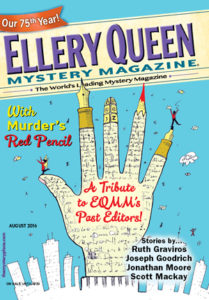 I was first introduced to Bill McCormick’s fiction when we shared the pages of EQMM’s August 2016 issue, which included my story, “Journal Entry, Franklin DeWitt,” about a Soviet ballerina who defected during the Cold War. McCormick’s story, “Voices in the Cistern,” takes us back to ancient times, 50 A.D., where a war is raging in the city of Chersonesus between the Romans and the Scythians. The setting for this edge-of-your-seat tale of thievery and murder is a most unusual place, inside a great, underground cistern containing the city’s water supply. I loved the voice and pace of this story and was impressed by the author’s handling of my favorite theme in fiction: moral dilemma. In my legal thrillers, prosecutor Dana Hargrove is often faced with impossible choices between her personal life and professional ethics. You won’t want to miss the moral dilemma McCormick poses at the end of “Voices in the Cistern”—it’s a real whopper!
I was first introduced to Bill McCormick’s fiction when we shared the pages of EQMM’s August 2016 issue, which included my story, “Journal Entry, Franklin DeWitt,” about a Soviet ballerina who defected during the Cold War. McCormick’s story, “Voices in the Cistern,” takes us back to ancient times, 50 A.D., where a war is raging in the city of Chersonesus between the Romans and the Scythians. The setting for this edge-of-your-seat tale of thievery and murder is a most unusual place, inside a great, underground cistern containing the city’s water supply. I loved the voice and pace of this story and was impressed by the author’s handling of my favorite theme in fiction: moral dilemma. In my legal thrillers, prosecutor Dana Hargrove is often faced with impossible choices between her personal life and professional ethics. You won’t want to miss the moral dilemma McCormick poses at the end of “Voices in the Cistern”—it’s a real whopper!
McCormick chooses historical settings for his fiction, and his work is meticulously researched. He holds a degree in ancient studies from Brown University, an MA in novel writing from the University of Manchester, and has lived abroad for many years, experiencing firsthand the countries and cultures in his fiction. Here lies another reason I was compelled to read more of his work. A personal reason. McCormick has lived in Latvia for several years and has studied Latvian history extensively.
My late father, Gunārs Ķēmanis, was a Latvian WWII refugee. He lived in a displaced persons camp in Germany from 1944 to 1949 and emigrated to the United States, where he met and married my mother and became a successful engineer. His gratitude to the U.S. was manifested by his complete Americanization; he did not speak Latvian at home, and did not observe Latvian traditions or holidays. In retrospect, I believe this was a coping mechanism for wartime trauma—even after Latvia regained its independence in 1990, my father did not want to visit because of lasting bitterness over the Soviet occupation. Our family name was Americanized, removing the diacritical marks and changing the spoken emphasis from the first syllable to the middle syllable, and my surname did not take on the feminine declension. (In Latvia, it would be written this way: Ķēmane). Conversations with my father and late aunt gave me secondhand knowledge of the Latvian wartime experience, some of which is woven into the stories “My Latvian Aunt” and “Stolen Afternoon” in my collection Dust of the Universe. I’ve also included a second-generation Latvian in my upcoming novel, the fourth Dana Hargrove legal mystery.
 McCormick’s short story “Blue Amber,” set in 1910, and his novel Lenin’s Harem, spanning 1905-1941, are works incorporating Latvian history and characters. “Blue Amber” was a Derringer Award finalist in the category of long story. Here, the author pits the protagonist, a Latvian political prisoner, against impossible odds, likely death in either of two ways: at the hand of his Russian captors or in an escape attempt through the frigid waters of the Baltic Sea. This compelling and suspenseful tale kept me turning the pages.
McCormick’s short story “Blue Amber,” set in 1910, and his novel Lenin’s Harem, spanning 1905-1941, are works incorporating Latvian history and characters. “Blue Amber” was a Derringer Award finalist in the category of long story. Here, the author pits the protagonist, a Latvian political prisoner, against impossible odds, likely death in either of two ways: at the hand of his Russian captors or in an escape attempt through the frigid waters of the Baltic Sea. This compelling and suspenseful tale kept me turning the pages.
McCormick’s novel Lenin’s Harem vividly portrays the traumatic events spanning the years from the first Russian Revolution in 1905 through WWI, and the Latvian declaration of independence in 1918 through the first Soviet occupation of Latvia at the beginning of WWII. The story is told from the point of view of Wiktor Rooks, a Baltic-German from a wealthy aristocratic family. The action starts with a Latvian uprising against the landowners when Wiktor is a young boy. His family loses the estate. Wiktor becomes a career soldier and ultimately joins the Red Latvian Riflemen, nicknamed “Lenin’s Harem.” 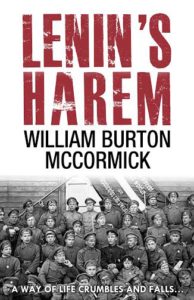 As the novel progresses, Wiktor finds more distance from his aristocratic roots, loses his prejudices as he forms personal relationships with Latvians in his regiment, and falls in love with a Latvian woman, Kaiva, who believes in communism. The novel contains impressive insights into relationships that are fraught with conflicting societal and political tensions. One of my favorite scenes is the dinner party where Wiktor introduces his fiancée Kaiva to the family. All is going reasonably well, the family almost accepts her, when a family member mentions that he has petitioned the League of Nations for the return of the family’s land, “illegally seized” by the Latvian government. Idealistic Kaiva innocently professes puzzlement: “Your life seems more than comfortable. Why do you need more?” She observes that their land, which once supported a single family, now supports several Latvian families: “It’s simply a better use of the land.” Who could argue with that? Well, the insult is ultimately tempered somewhat when Kaiva is asked to consider how she felt when she was thrown from her home and became a refugee, causing her to admit that the loss of home is traumatic, no matter what the reason.
As the novel progresses, Wiktor finds more distance from his aristocratic roots, loses his prejudices as he forms personal relationships with Latvians in his regiment, and falls in love with a Latvian woman, Kaiva, who believes in communism. The novel contains impressive insights into relationships that are fraught with conflicting societal and political tensions. One of my favorite scenes is the dinner party where Wiktor introduces his fiancée Kaiva to the family. All is going reasonably well, the family almost accepts her, when a family member mentions that he has petitioned the League of Nations for the return of the family’s land, “illegally seized” by the Latvian government. Idealistic Kaiva innocently professes puzzlement: “Your life seems more than comfortable. Why do you need more?” She observes that their land, which once supported a single family, now supports several Latvian families: “It’s simply a better use of the land.” Who could argue with that? Well, the insult is ultimately tempered somewhat when Kaiva is asked to consider how she felt when she was thrown from her home and became a refugee, causing her to admit that the loss of home is traumatic, no matter what the reason.
If you enjoy historical fiction, tales of war and revolution, political intrigue, psychological suspense, action, family saga, or any of the above, you’ll find it all in Lenin’s Harem, along with a tender love story, all packaged in beautiful prose.
And now, I’ll let Bill McCormick tell us what went into the creation of this superb novel.
Welcome to VBlog, Bill! I find it fascinating that you have chosen to live abroad for years at a time to write historical fiction about the countries you are experiencing firsthand. What led you to make such a dramatic life choice, and what led you to choose Latvia, in particular?
I have always wanted to travel, and I have always wanted a creative occupation. I’m sure those aren’t unusual traits in a writer. Merging them was always a long-term goal for how I wanted to live my life.
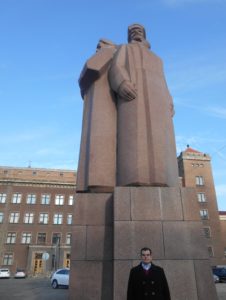
Bill at the monument to the Red Latvian Riflemen
As for my interest in Latvia, I was living in Alexandria, Virginia at the time and working on an outline for a sort of generic spy thriller I had dreamed up. In researching a setting for this story, I went to the Latvian Museum in Rockville, Maryland, and bought several books on Latvian history. I was moved about what I learned. I had little knowledge of the cruel events that occurred there. Because of the World Wars, Russian Revolution, Russian Civil War, Holocaust, Soviet deportations to the Gulag, and the exodus of the Baltic-Germans, Latvia lost more than a quarter of its population during the first half of the twentieth century. And I found tragic irony in the story of the Red Latvian Riflemen, who rescued the Bolsheviks time-and-time again and were key in the formation of the Red Army, only to be murdered by Stalin in his purges. After reading this, I ripped up my plan for a spy thriller and decided to write a serious historical novel. At the time, there was little information available on the internet on this era in Latvian history, and what was available was usually in Russian with a decidedly Soviet perspective. So, with a detour through Manchester, England to learn the writing craft, I moved to Latvia. I did not want to depend on third or fourth-hand sources. I wanted total immersion to see the places, the culture, and do the research myself. I arrived in Rīga, knowing no one, without a job, apartment, or command of the language, but determined to write a book that would illustrate to the English-speaking world what happened in Latvia in the twentieth century. I worked with historians, museums, archivists, and interviewed survivors and family members of some of the later events. It quickly went from a novel to a very personal experience. I have since lived in Russia, Estonia and Ukraine, but Latvia, and Rīga in particular, is still the place I think of as home outside of the United States.
I was surprised by the reception the novel received from the Latvian community. I spoke about the book and the history behind it at the Latvian Embassy to the United States in January of 2013. The Latvian Museum, where it all started for me, was kind enough to host a book event. Zvaigzne ABC, Latvia’s largest publisher, published a Latvian-language edition which did quite well, and the book was included in the permanent library of the Latvian War Museum in Rīga. As a foreigner, writing about the history of another nation, I continue to be amazed at the book’s acceptance. It’s still the thing I’m most proud of in my career.
The novel also was well-received in the English-speaking world. Former Senate Majority Leader, Harry Reid of Nevada, sent me a note saying he enjoyed Lenin’s Harem so much he read it twice. Gregg Popovich, head coach of the San Antonio Spurs, liked it enough to send me a bottle of wine. Good word from all quarters.
Lenin’s Harem spans the years from 1905 through 1941. During this period, like many in its history, Latvia was a pawn in an endless struggle for control by Germany and Russia. The protagonist of the novel is Wiktor Rooks, a Baltic-German who grew up in a wealthy family that owned land in present-day Latvia, worked by Latvian servants. What led to your decision to tell this story from the point of view of a Baltic-German rather than a Latvian or a Russian?
When writing Lenin’s Harem, I was aware that my readership would likely be unfamiliar with Latvian history, culture and their way of life in the early twentieth century. By creating a protagonist who is an outsider to that society, it allowed me more naturally to explain things to the audience within the narrative. As I too was an outsider, Wiktor’s discoveries and observations could to some degree mirror my own. Or contrast my own in interesting ways. And, of course, as a wealthy Baltic-German, the character is right in the middle of all the conflicts of nation, ethnicity, and class, as society radically changes during the upheavals of the era.
The characters are tugged in many directions by conflicting forces: social, nationalist, political, ethnic, familial. There’s also just plain survival at work, the need to adapt to the current regime. Rooks is Baltic-German, yet he ends up fighting for the Russians and falling in love with a Latvian woman, Kaiva, who believes in communism. For a modern-day reader from a stable country like the United States, it may be difficult to imagine why a Baltic-German would end up fighting for the Russians. Can you comment on some of these conflicts?
Historically many Baltic-Germans living within the Russian Empire were officers in the Tsar’s army. The first sons of aristocratic families managed the estates, but the second and later sons needed something to do. It was common for this class to end up as professional soldiers. But, during the World Wars, of course, this meant fighting other Germans. So, here we have an interesting conflict for Wiktor, one that creates mistrust with both the Russians and the Latvians. And then when the Bolshevik Revolution occurs, with its intrinsic class warfare, Wiktor’s aristocratic past puts him in even greater peril. There was a lot I could do with such a character. Wiktor begins the novel with the racist and classist views common to wealthy landowners of the time. But as the novel progresses, those prejudices fall away as he meets new people and experiences tragedy and triumph in the company of other economic and ethnic groups, particularly the Latvian soldiers he learns to survive with. By the middle of the novel his love for the revolutionary Kaiva is plausible. His character arc happens in logical steps, taking Wiktor into worlds he could never have imagined at the beginning of Lenin’s Harem. I think this is what makes him a compelling character.
The novel takes us through the beginning of World War II, during the Soviet occupation and the so-called “Night of Terror,” June 14, 1941, when the Soviets deported thousands of Latvians. In the ending scenes, the Soviets are retreating again, on the eve of a new period of German occupation, 1941-1944, and the future of the protagonists is left to the imagination. I love the ending of the book, the combination of hope and self-determination threatened by a grim reality. Are you planning a sequel to let us know how Wiktor and Kaiva fared? What is your current project?
I have very rough drafts of two more novels that extend the story through days of the Forest Brothers who resisted the Soviet occupation in the Kurzeme and Latgale regions of Latvia until the early 1950s. I hope to revise those at some point. There is more to tell of Kaiva and Wiktor, but for now, the ambiguous nature of their fate gives Lenin’s Harem an appropriately uncertain ending for what were definitely uncertain times.
I am currently finishing a modern thriller set predominantly in Latvia called KGB Banker, co-written with John Christmas. John is a very brave man, a whistleblower against the Russian mob in Latvia and elsewhere. Many of his experiences have inspired our story of a Latvian-American banker who takes a job in Rīga, only to find himself embroiled in murder and an international conspiracy to destroy the Western economy and re-establish the borders of the Soviet Union. High octane stuff.
One of the key characters in KGB Banker is a Latvian journalist named Santa Ezeriņa. Santa is a popular character of mine, having appeared in Alfred Hitchcock Mystery Magazine, Over My Dead Body, and the story “Matricide & Ice Cream” which is about to be published in the United Kingdom in the CWA Anthology of Short Stories: Mystery Tour by Orenda Books. People are always trying to kill poor Santa but can never quite do it. She’s a damn tough heroine. I’m looking forward to having Santa in her first full-length novel.
After KGB Banker is finished, former U.S. Senator Harry Reid and I are planning to write a true crime western set in our mutual home state of Nevada. That ought to keep me busy through 2020 or so.
We look forward to your next novel, Bill! Thank you for this insight into your work and Latvian history.
NOW, dear reader, where can you get Lenin’s Harem and short stories by William Burton McCormick? Click the links! Lenin’s Harem (ebook) (hardcover); Ļeņina harems (ebook in Latvian) (print book in Latvian); Blue Amber (ebook); August 2016 issue of EQMM; upcoming CWA Anthology of Short Stories: Mystery Tour; Santa Ezeriņa story “Hagiophobia” in AHMM.
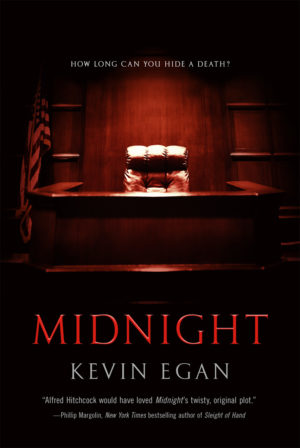
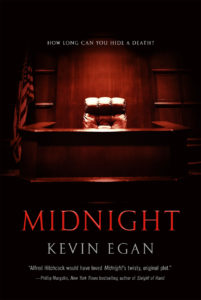
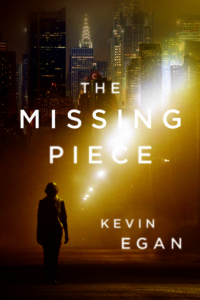
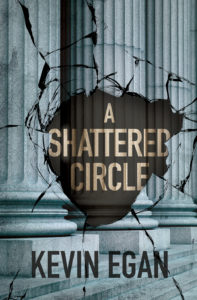


 I was first introduced to Bill McCormick’s fiction when we shared the pages of
I was first introduced to Bill McCormick’s fiction when we shared the pages of  McCormick’s short story “
McCormick’s short story “ As the novel progresses, Wiktor finds more distance from his aristocratic roots, loses his prejudices as he forms personal relationships with Latvians in his regiment, and falls in love with a Latvian woman, Kaiva, who believes in communism. The novel contains impressive insights into relationships that are fraught with conflicting societal and political tensions. One of my favorite scenes is the dinner party where Wiktor introduces his fiancée Kaiva to the family. All is going reasonably well, the family almost accepts her, when a family member mentions that he has petitioned the League of Nations for the return of the family’s land, “illegally seized” by the Latvian government. Idealistic Kaiva innocently professes puzzlement: “Your life seems more than comfortable. Why do you need more?” She observes that their land, which once supported a single family, now supports several Latvian families: “It’s simply a better use of the land.” Who could argue with that? Well, the insult is ultimately tempered somewhat when Kaiva is asked to consider how she felt when she was thrown from her home and became a refugee, causing her to admit that the loss of home is traumatic, no matter what the reason.
As the novel progresses, Wiktor finds more distance from his aristocratic roots, loses his prejudices as he forms personal relationships with Latvians in his regiment, and falls in love with a Latvian woman, Kaiva, who believes in communism. The novel contains impressive insights into relationships that are fraught with conflicting societal and political tensions. One of my favorite scenes is the dinner party where Wiktor introduces his fiancée Kaiva to the family. All is going reasonably well, the family almost accepts her, when a family member mentions that he has petitioned the League of Nations for the return of the family’s land, “illegally seized” by the Latvian government. Idealistic Kaiva innocently professes puzzlement: “Your life seems more than comfortable. Why do you need more?” She observes that their land, which once supported a single family, now supports several Latvian families: “It’s simply a better use of the land.” Who could argue with that? Well, the insult is ultimately tempered somewhat when Kaiva is asked to consider how she felt when she was thrown from her home and became a refugee, causing her to admit that the loss of home is traumatic, no matter what the reason.